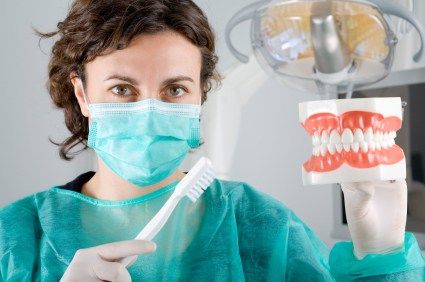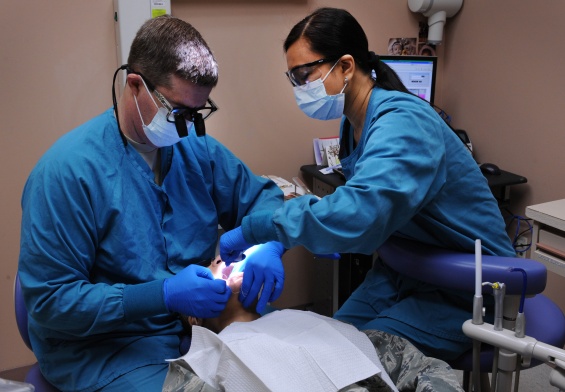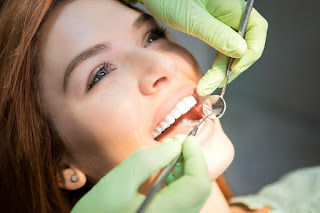When faced with a cancer diagnosis, the last thing you want to think about is assessing your dental health and developing an action plan for how to care for and protect your teeth and gums. However, this may be the best way to ensure you don’t experience complications that can affect your treatment and general health. According to the National Institute of Dental and Craniofacial Research, more than one-third of all cancer patients develop complications that affect the mouth. Cancer patients may experience mild to severe side effects including mouth sores, infection, dry mouth, sensitive gums and jaw pain. Make your dental health a priority by making your dentist a part of your cancer care team.
What to Know About the Mouth?
The mouth is the part of the body with specialized tissue, nerves, and muscles that help you eat, taste, swallow and speak. It’s the only part of the body where hard tissue like the teeth, touches the outside world. The mouth is where joints have both ball and socket and sliding movements, which is also where the jawbones connect with the skull. But most importantly, the mouth has glands that produce saliva for lubrication. Not producing enough saliva can be the cause for a dry mouth and further dental issues for cancer patients along the line.
Cancer Treatments that Can Affect Your Mouth
Types of cancer treatments such as chemotherapy, radiation therapy to the head or neck, and some forms of targeted therapy interfere with the functions of the mouth. Surgery is part of the treatment plan for some cancers of the head and neck. Sometimes, surgery will affect the mouth and its associated structures, like the salivary glands. Cancer and its treatments can also weaken cancer patients’ immune system, making them more susceptible to infection. If the infection is serious enough, it can delay your cancer treatment. A few side effects during cancer treatments include:
- Mouth sores – Mouth sores usually occur on the cheeks, tongue, floor of the mouth, and soft palate. It may be comfortable when you have one, but most eventually heal on their own. Try avoiding spicy, acidic, hard and crunchy foods as this may irritate the sores.
- Stiff jaw – Jaw muscles may become stiff after radiation therapy. Try learning stretching and relaxation exercises specifically for stiff jaw muscles.
- Dry mouth – Radiation therapy and drugs to the head and neck affect the salivary glands. This may cause your mouth to feel dry due to not producing enough saliva. The best thing you can do is stay hydrated and avoid caffeinated drinks.
- Dental issues – Not producing enough saliva because of cancer treatment can cause plaque to build up more easily on your teeth. The build up of plaque can then cause tooth decay and gum disease. Practice a good oral hygiene by regularly brushing and flossing.
How to Care for Your Mouth During Cancer Treatment
Before you start a cancer treatment, you may want to see a dentist. However, caring for your mouth can start at home with these helpful tips. Brush your teeth and tongue gently within 30 minutes after eating. Use a small, soft-bristle toothbrush. Change your toothbrush every 3 to 4 months or more often if needed. Floss your teeth with unwaxed dental floss once daily at bedtime. Rinse your mouth every 4 to 6 hours, or more often as needed. Swish the rinse in your mouth and gargle well for 15 to 30 seconds, then spit out the rinse. Don’t use very hot or cold temperatures of mouth rinses. Don’t use mouth washes that have hydrogen peroxide unless your doctor tells you to. If you’re not eating food orally by mouth, make sure your mouth is kept clean and moist to avoid mucositis.
Mucositis is when radiation therapy to the head and neck affect the cells that are in your mouth and digestive tract. It can cause redness, swelling, tenderness, and sores on the lining of the mouth.
Assess You Dental Health
In order to help reduce possible side effects associated with chemotherapy and radiation, the American Dental Association recommends treating areas of concern before you engage in any cancer treatment. Doing so beforehand, will allow you address any issues such as cavities, gum disease or other dental hygiene issues that have the possibility of getting worse as you get further into treatment. Following simple recommendations like eating healthy foods to make your immune system stronger and rinsing your mouth with hot water, baking soda and salt will ensure your mouth is clean and not a breeding ground for infection.
Find Yourself Philanthropists That are Willing to Help
Philanthropists like The Silverstrom Group have made it a mission to contribute to their community through scholarships, charity donations and their new program, The Smiles for Life Award. The Smiles for Life Award was created by Drs. David and Gary Silverstrom in partnership with the American Cancer Society to rehabilitate the mouth of cancer survivors. Once a recipient in need is selected, the transformational process begins. Through videos and photographs, the smile makeover is documented and later revealed to showcase the healing power of a smile makeover and to celebrate survivorship.




